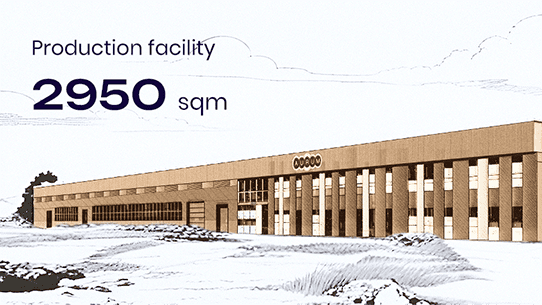How Recuperators Save Energy
The Importance of Recuperators for Saving Energy
In today’s world, energy efficiency is more important than ever. As we face increasing energy demands and growing concerns about environmental sustainability, finding ways to optimize energy use is critical. One of the most effective technologies for enhancing energy efficiency in various systems is the recuperator. This article explores what recuperators are, how they work, and their significance in saving energy across different applications.
What is a Recuperator?
A recuperator is a type of heat exchanger that recovers waste heat from one process stream and uses it to preheat another process stream. This technology is widely used in industrial processes, HVAC systems, and various other applications where heat transfer is involved.
How Recuperators Work
Recuperators function by transferring heat from a hot fluid (gas or liquid) to a colder fluid without mixing the two streams. The heat transfer occurs through a solid partition that separates the two fluids, ensuring that the thermal energy is effectively transferred while maintaining the purity and integrity of the fluids.
There are several types of recuperators, including:
- Plate Heat Exchangers: These consist of thin, corrugated plates stacked together, allowing for efficient heat transfer between the fluids.
- Shell and Tube Heat Exchangers: These use a series of tubes, with one fluid flowing through the tubes and the other around them, facilitating heat exchange.
- Rotary Heat Exchangers: These use a rotating wheel made of a heat-absorbing material, transferring heat between the two fluid streams as it rotates.
Importance of Recuperators in Energy Saving
- Enhancing Energy Efficiency: Recuperators significantly improve the energy efficiency of systems by recovering waste heat that would otherwise be lost. This recovered heat can be reused, reducing the need for additional energy input and lowering overall energy consumption.
- Reducing Operational Costs: By recovering and reusing waste heat, recuperators help in cutting down energy bills. Industrial processes and HVAC systems can achieve substantial savings on fuel and electricity costs, leading to lower operational expenses.
- Decreasing Environmental Impact: Efficient energy use directly correlates with reduced greenhouse gas emissions. Recuperators contribute to a greener environment by minimizing the energy required for heating processes, thereby decreasing the carbon footprint of industrial operations and buildings.
- Improving Process Performance: In industrial settings, maintaining optimal temperatures is crucial for efficient process performance. Recuperators help in achieving precise temperature control, enhancing the overall performance and reliability of industrial processes.
- Supporting Sustainable Practices: Implementing recuperators aligns with sustainable practices and corporate social responsibility goals. Companies that invest in energy-efficient technologies like recuperators demonstrate a commitment to sustainability, which can enhance their reputation and market competitiveness.
Applications of Recuperators
- Industrial Processes: Recuperators are widely used in industries such as steel manufacturing, chemical processing, and power generation. In these settings, they recover heat from exhaust gases or process fluids, using it to preheat combustion air or other process streams.
- HVAC Systems: In heating, ventilation, and air conditioning (HVAC) systems, recuperators recover heat from exhaust air and use it to preheat incoming fresh air. This is particularly beneficial in large commercial buildings and residential complexes, where it significantly improves heating efficiency.
- Renewable Energy Systems: Recuperators are also used in renewable energy systems, such as solar thermal plants and biomass power plants. They help in maximizing the energy output by efficiently utilizing the heat generated in these processes.
- Automotive Industry: In automotive applications, recuperators recover heat from exhaust gases and use it to improve engine efficiency or to provide heating for the passenger compartment.
Conclusion
Recuperators play a pivotal role in enhancing energy efficiency across various applications. By recovering and reusing waste heat, they help reduce energy consumption, lower operational costs, and minimize environmental impact. As industries and societies strive for greater sustainability and efficiency, the adoption of recuperators is set to become increasingly important. Embracing this technology not only supports energy-saving initiatives but also aligns with global efforts to create a more sustainable future.



